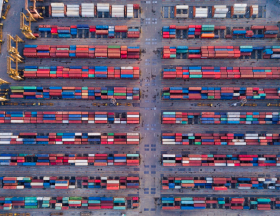South Africa, the only emerging country and a member of the G20 in Africa, is going through difficult times. Its leadership in terms of creating added value on the black continent is contested by Nigeria and Egypt. Investors are expressing their concerns.
South Africa is set to lose its place as Africa’s second largest economy in terms of gross domestic product (GDP), according to calculations made by the Ecofin Agency on the basis of economic forecasts from the International Monetary Fund (IMF) revised in early April 2021.
Taken in dollars and at the current rate, the economy of this country should this year experience a flow of added value of the order of $ 329.5 billion. This ranks it third behind Egypt, which is expected to achieve a GDP of $ 394.28 billion over the same period.
Nigeria is now alone at the top of the ranking with a forecast GDP of $ 514 billion. Until 2026, the IMF forecasts maintain this order. Nigeria is expected to generate a cumulative GDP of $ 4,346.5 billion while Egypt will support it ($ 2,926.7 billion). South Africa remains in third place, with an expected GDP over the period of just $ 2,179 billion.
The days when South Africa was at the head of African economies seem to be over. Foreign investors who target the financial and capital markets of this country seem to have had this information upstream.
According to monthly statistics published by the South African Central Bank, they were net sellers (more sales than purchases) of bonds and stocks listed on the Johannesburg Stock Exchange, with for South Africa a loss of R11.5 billion ($ 786.6 million) during the month of February 2021, the first since November 2020.
The sale of shares is justified by the low returns that the Johannesburg Stock Exchange now provides, with in February a gain of 1.2% for each unit of currency invested in this financial market.
Investors have also sold $ 3.3 billion in bonds issued in local currency since mid-February 2021, according to the Institute for International Finance (IIF).
A situation which should increase the pressure on the country’s ability to import. The disenchantment of international investors for South Africa is not a problem for this only country which actually serves as an anchor for many of them who wish to afford the vast African market.
A loss of investment capacity in this economy is sure to have an impact on expansion strategies across the continent. Despite feedback not always pleasant like those of Tiger Brand, Shoprite and MTN, the large South African groups have no other choice but to find a space that allows them to contain the low margins in South Africa.
This worked for the Standard Bank group, which in 2020 generated more than half of the income from its activities in the rest of Africa. But for that, it will have to do with competition from Nigeria, Morocco and to a certain extent Kenya in East Africa.































Réagissez à cet article